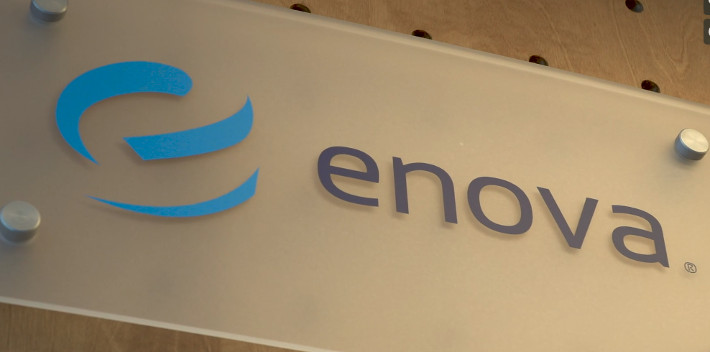Archive for 2021
Merchant Cash Advance Contract Terms Explained
August 3, 2021A Merchant Cash Advances is a sale of future receivables, not a loan. To learn the difference, watch this.
Below are three terms that are important to understand:
Enova Originated $400M in Small Business Loans in Q2
August 3, 2021 Enova, the international lending firm that owns the OnDeck brand, reported Q2 small business loan originations of $400M. That brings the year-to-date figure to $722M, approximately half of the volume OnDeck was producing prior to Covid. (OnDeck’s 2019 originations were $2.475B)
Enova, the international lending firm that owns the OnDeck brand, reported Q2 small business loan originations of $400M. That brings the year-to-date figure to $722M, approximately half of the volume OnDeck was producing prior to Covid. (OnDeck’s 2019 originations were $2.475B)
“OnDeck’s performance continues to exceed our expectations,” said Enova CEO David Fisher during the quarterly earnings call, “and we will easily exceed our forecast of $50 million of annual cost synergies, primarily from eliminated duplicative resources, as well as $15 million in run rate net revenue synergies.”
Cash has also come pouring in.
“…While we originally thought that OnDeck’s legacy portfolio would have very little value, we now expect to receive over $220 million of total cash from the acquired portfolio, net of securitization repayments,” Fisher said. “In fact, we’ve already realized over $100 million from the legacy portfolio.”
Although ISOs (aka brokers) will remain an important part of driving OnDeck’s growth, Enova is happy that OnDeck brings more to the table.
“The good news about OnDeck, is at least they had a direct channel and a pretty good direct channel because of their terrific brand on the small business side, where our small business products had no direct channel,” Fisher said. “It was all through ISOs. So, we gain that capability through OnDeck.”
Enova reported $80M in net income for the quarter on $265M in revenue.
Velocity Capital Group Becomes First Funder to Offer Broker Commissions Via Crypto
August 2, 2021 Velocity Capital Group is bullish on crypto as a means of payment. Company President and CEO Jay Avigdor told deBanked that the company is officially incorporating cryptocurrency in two ways:
Velocity Capital Group is bullish on crypto as a means of payment. Company President and CEO Jay Avigdor told deBanked that the company is officially incorporating cryptocurrency in two ways:
(1) Brokers can now choose to get paid commissions in cryptocurrency instead of cash.
(2) Merchants can now choose to get funded via cryptocurrency instead of cash.
In both cases, Avigdor touted the speed in which cryptocurrency can change hands versus waiting around for an ACH or a wire.
“Our goal since day 1 of VCG, was to give ISOs and merchants the ability to access capital as fast as possible,” Avigdor said. “With VCG’s proprietary technology, we have been able to change that mindset from ‘as fast as possible’ to ‘the FASTEST possible.'”
The company says it will use stable coins (USD Coin and DAI) to conduct these transactions “in order to limit market volatility” but that depending on the merchant or ISO relationship, they would be open to transmitting Bitcoin, Ethereum, etc.
Merchants getting funded with crypto would still have their future receivables collected via ACH so that part of the arrangement would not change. The underlying business is the same.
VCG alluded to there also being potential tax benefits of taking payment in crypto.
Avigdor believes that among industry peers, VCG is the first to offer commissions in crypto. He further explained that this is only one piece of the puzzle and that there are plans to integrate the company’s technology in a way that will allow merchants to access funding in less than 20 minutes from the time of submission to funds actually being received.
LendingClub is Back in the Commercial Loan Business
August 2, 2021 In 2019, LendingClub threw in the towel on its business loan product after mediocre demand and results.
In 2019, LendingClub threw in the towel on its business loan product after mediocre demand and results.
But now LendingClub is somewhat back in the game, due to its acquisition of Radius Bank. The company reported $624 million worth of commercial loans on its Q2 balance sheet, which consists of equipment financing, commercial real estate, and other commercial financing. The average yield on these loans is only 5.81%.
This portion of their business has received little attention, but LendingClub’s website now touts a variety of business loan options available including commercial real estate, SBA loans, equipment financing, and yacht loans.
On leases, it says its target transaction size is between $1 million and $10 million.
During a previous earnings call in Q1, Lending Club execs said they expected all of their portfolios to grow in 2021, but that their focus would remain on the consumer segment. The company originated $2.7B in consumer loans in Q2.
Merchant Cash Advance and Small Business Lending for Beginners
July 30, 2021New to the small business finance industry? deBanked has more than 50 FREE explainer videos on terms and topics that merchant cash advance and small business lending professionals must know to succeed. This library will continue to grow over time and remain completely free!
How to Think About Credit Invisibility
July 29, 2021Authored by:
Lily Cook, Researcher at Canadian Lenders Association
Tal Schwartz, Senior Advisor at Canadian Lenders Association
 Recent research by PERC has highlighted the issue of credit invisibility in Canada, defined as “persons with either no account payment history in their credit report (referred to as “no files”) or fewer than three accounts in their credit report (referred to as “thin files);”
Recent research by PERC has highlighted the issue of credit invisibility in Canada, defined as “persons with either no account payment history in their credit report (referred to as “no files”) or fewer than three accounts in their credit report (referred to as “thin files);”
In Canada, credit scores are calculated using payment history, outstanding debt, credit account history, recent inquiries and types of credit. However, according to research from Cornerstone Advisors, the ‘on-ramps’ to being credit visible are limited and come with challenges. The most common paths are:
- Credit cards:
- Collections: Collections as a point of entry into a credit system immediately sets the consumer at a disadvantage, since the first thing to identify them is a negative characteristic.
In general, Canadians under 25 tend to use credit cards at far lower rates. Those in that age group who do have a credit history have the highest percentage of credit scores below 520, according to Equifax Canada.
The rate and impact of credit invisibility in Canada is significant:
- 35.3% of Canadians are credit invisible vs. 19.3% in the US.
- the issue disproportionately affects immigrants, minority communities or younger individuals.
How are fintechs addressing this?
1. Access to alternative data
Canadian data aggregators provide lenders with access to non-traditional credit information that advanced firms can apply ML to in order to better adjudicate credit.
- Open banking data providers like Flinks and Inverite provide consumer transaction history information that allows fintech lenders to underwrite credit invisibles based on their cash flow instead of their credit score.
- Commercial data providers like Forward AI, Boss and Railz pull financial data from accounting systems, payroll, and point of sale terminals in order to give lenders a more fulsome picture of a businesses health.
2. Make alternative data mainstream
PERC Canada recommended that the CFPB explicitly include non-financial institutions in their definition of a ‘creditor’ in order to report positive payment data to credit bureaus. Credit reports that could ‘reward’ customers for paying telecommunications bills on time, for example, could make the credit system more forgiving in the future.
- Billi, for example, a Canadian fintech allows users to integrate on-time payments for their Amazon Prime and Netflix accounts into their credit reports in order to improve them.
Canadian credit bureaus have also taken active steps to being more inclusive of alternative data. A prime (no pun intended) example is Landlord Credit Bureau’s (LCB) and Equifax’s partnership to allow rent payments to count towards credit scores.
- Both as a way to reduce risk for landlords and give tenants a leg up in the market, this shared use of alternative data is “ninety-plus per cent….positive in nature, so overwhelmingly landlords use this to reward tenants,” LCB’s CEO, Zachary Killam said.
3. Create a better on ramp to credit building
Credit building loans can unlock credit for those with minimal histories or challenging track records. These are installment loans that only pay out once the customer has paid them off, and are offered by fintechs like as Spring, Marble and Refresh.
Essentially reverse loans, the reverse structure protects the lender, in the event that the customer doesn’t make all their payments. Over the course of the loan term, the customer’s payments are reported to the credit bureaus. Borrowell, which recently acquired Refresh’s credit building loan portfolio, is now one of the largest providers of this service in Canada.
So what’s the solution?
In order to drive meaningful change on the issue of credit invisibility, fintechs must continue to enable lenders to challenge the limitations of the credit system – by improving access to alternative data, normalizing its use and building better on-ramps to the credit system than collections and credit cards.
Credit invisibility is caused largely by structural issues within Canada’s data markets, but fintechs are starting to fill these gaps.
Greenbox Capital Acquired Level Up Funding
July 29, 2021 Miami-based Greenbox Capital, a small business finance provider, has acquired Level Up Funding.
Miami-based Greenbox Capital, a small business finance provider, has acquired Level Up Funding.
Level Up, which focuses on small business lines of credit, was co-founded in 2019 by industry veterans Maciej Bykowski, once the Director of Sales for OnDeck, and Drew Batiato, the former Chief Credit Officer of Idea Financial. Level Up was based in Denver and relocated to Miami, nearby to where Greenbox is.
In an official announcement, Greenbox Capital CEO Jordan Fein, said “We are thrilled to have Level Up Funding join our organization. Their founders and key staff are a wealth of industry knowledge. The acquisition will immediately impact growth and the unique selling proposition that we offer our clients.”
Fein says to expect more such deals in the future:
“We’ll continue to make strategic moves to scale, which includes synergistic acquisitions to further distance ourselves from our competitors,” he said. “Level Up is the first of many to come.”
Bykowski of Level Up said, “Our mission has always been driven by a consumer first perspective. Having a shared vision for the future of alternative lending, we are excited to work together to leverage technology to enhance Greenbox Capital’s product offering and create a seamless customer experience.”
“We’re very excited for our future here at Greenbox. We will have the opportunity to develop new products that will aid clients across the US and abroad with their business growth,” said Level Up’s Drew Batiato.
NJ Resurrects Small Business Finance Disclosure Bill
July 28, 2021New Jersey’s legislature has revived its small business finance disclosure bill. Having languished since last January, the Senate Commerce Committee quietly gave it a favorable report this past June.
New Jersey’s bill is similar to the law that New York is putting into effect on January 1st. As part of it, non-loan products will be required to calculate an APR even if one cannot be mathematically calculated by “estimating” one.
Brokers would be impacted too:
A broker who charges any fees or commission that would be paid by the recipient of the financing shall provide, at the time of extending a specific offer for a commercial financing transaction and in a form and manner prescribed by the commissioner, a written disclosure, in a document separate from the provider’s contract with the recipient, stating the following, if the information is not contained within the disclosure offered by the provider directly to the recipient:
(1) a list of all fees or commissions that would be paid to the broker by the recipient in connection with the commercial financing;
(2) the total dollar amount of charges listed pursuant to the bill;
and
(3) any increase to the annual percentage rate due to the charges listed above and the resulting dollar cost.
You can read the Senate Commerce Committee’s report here.





























